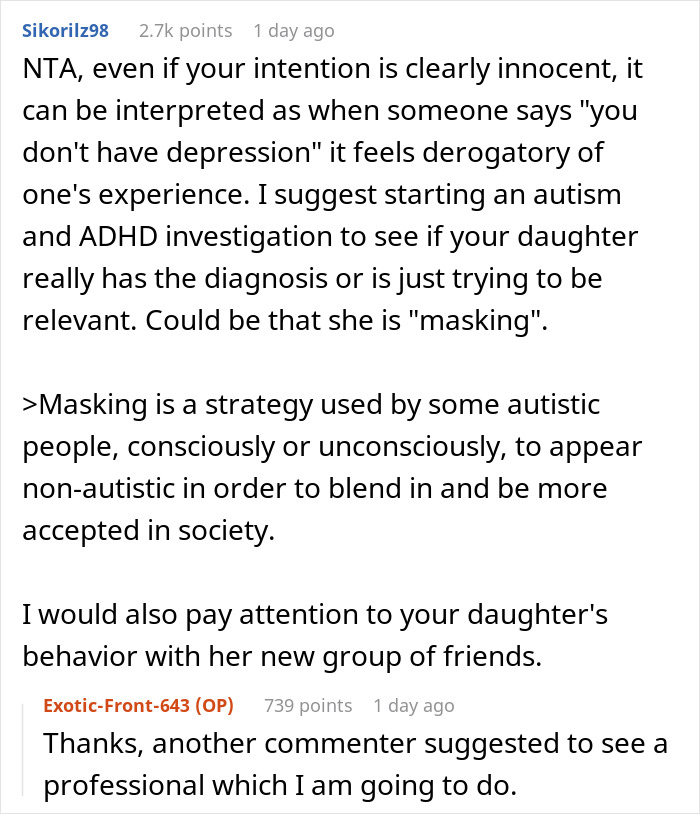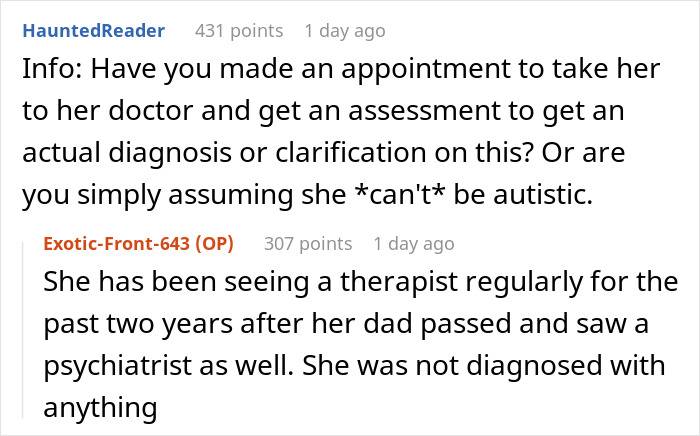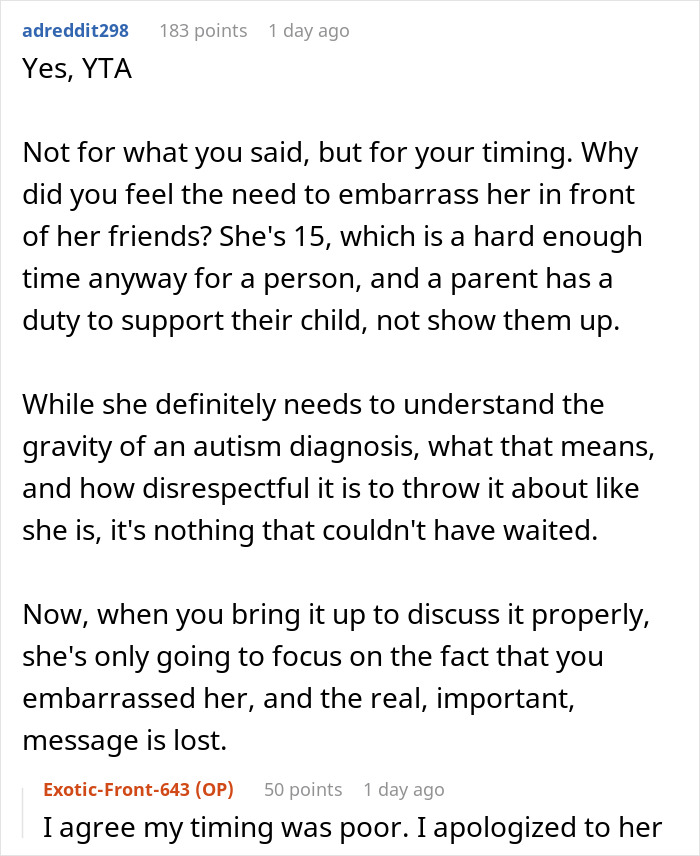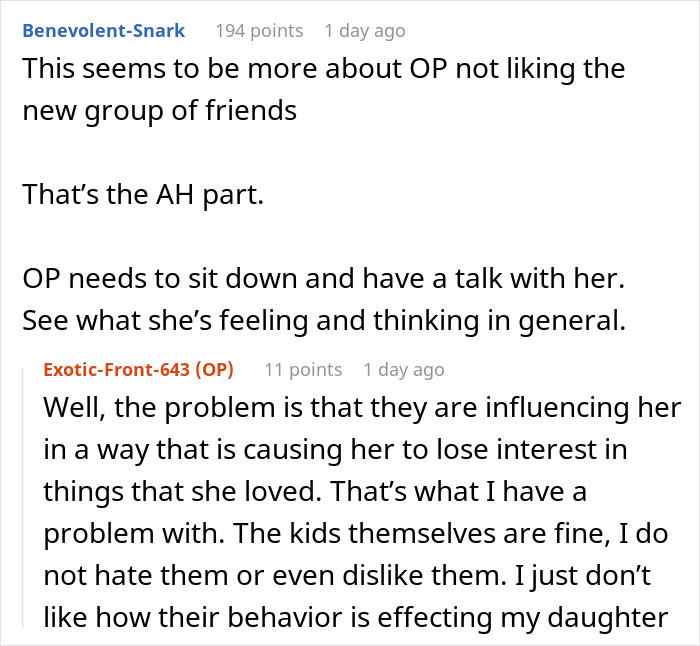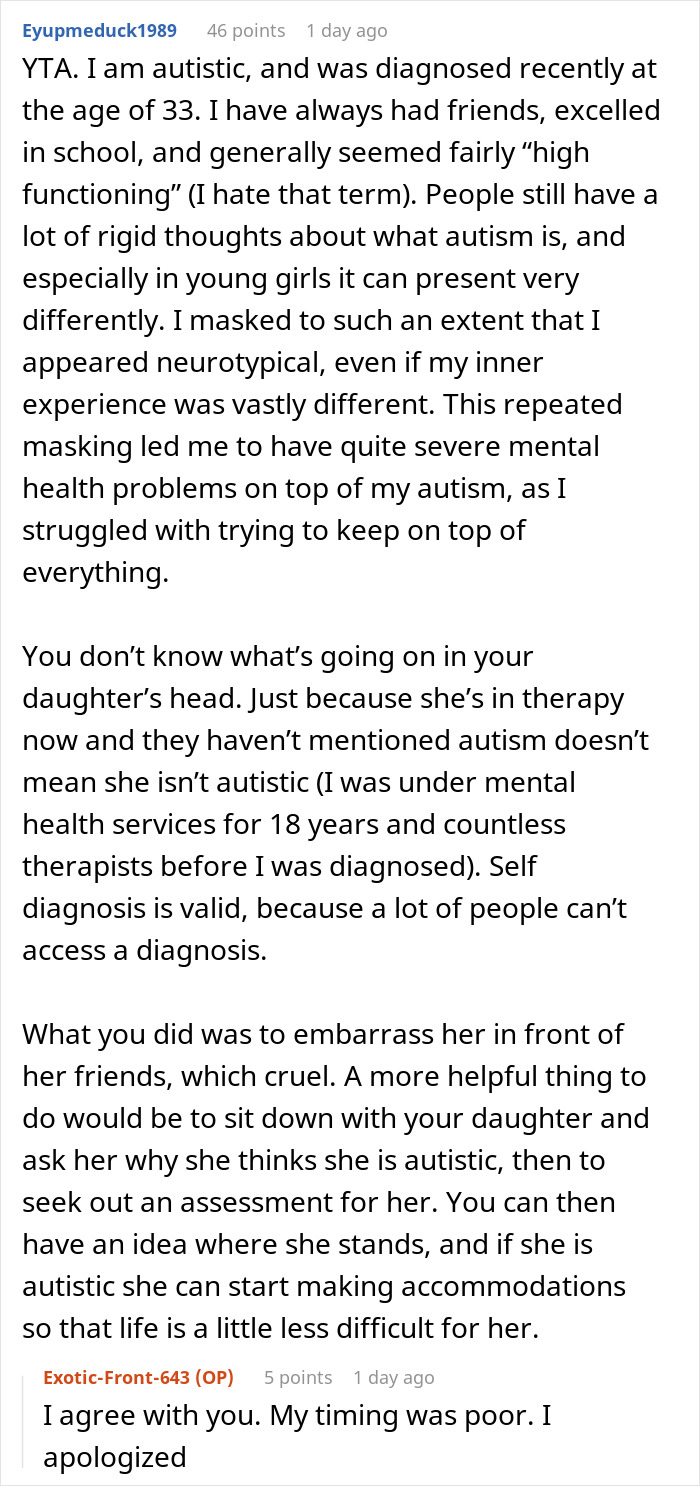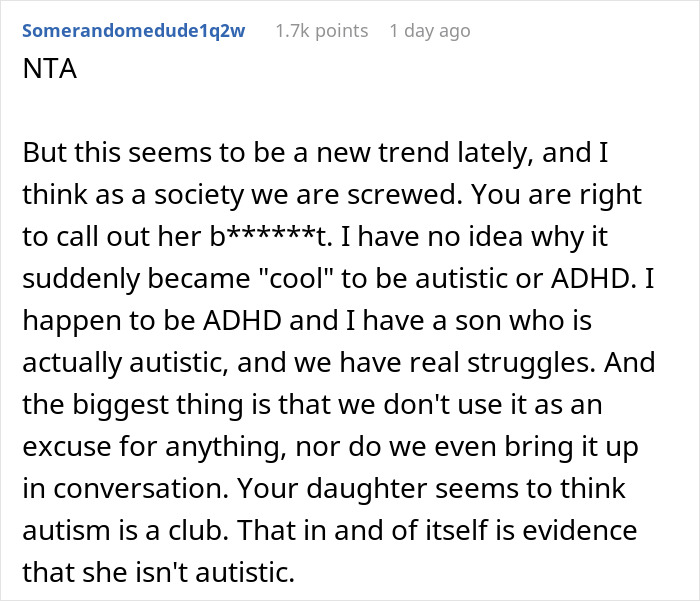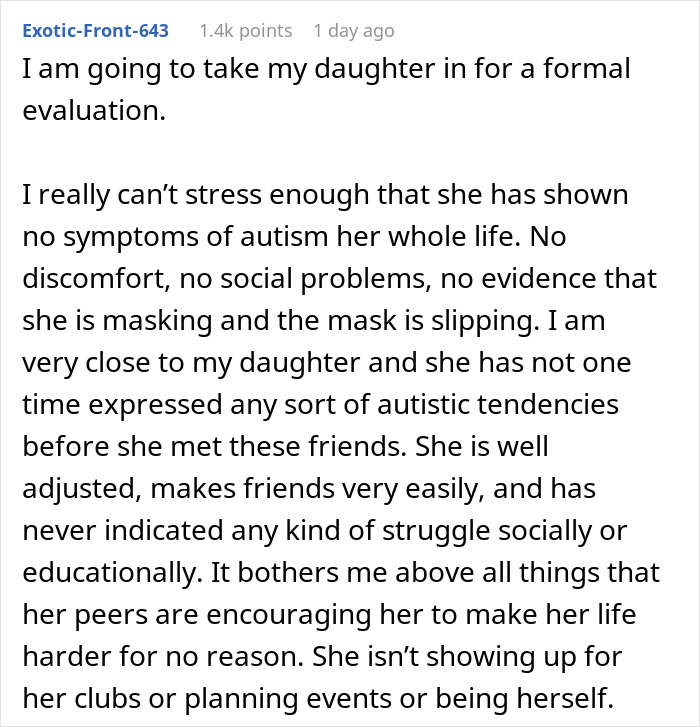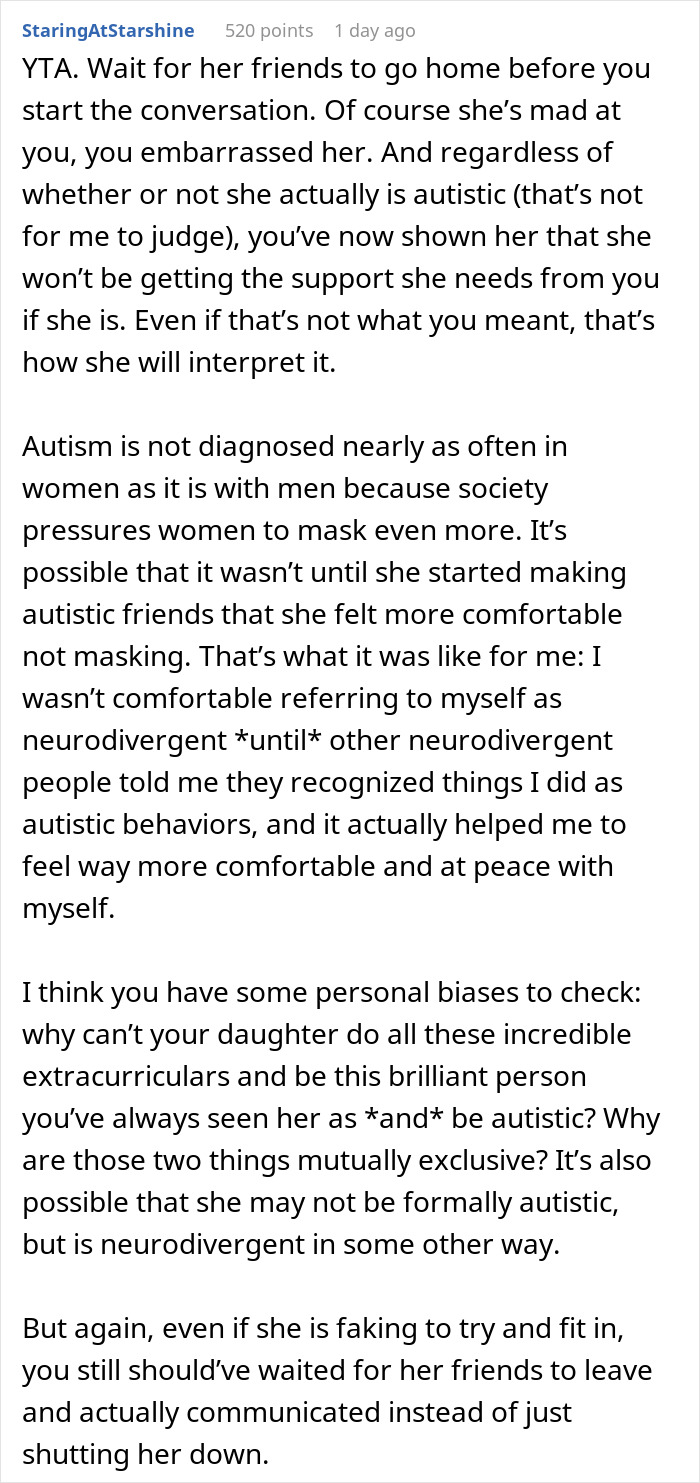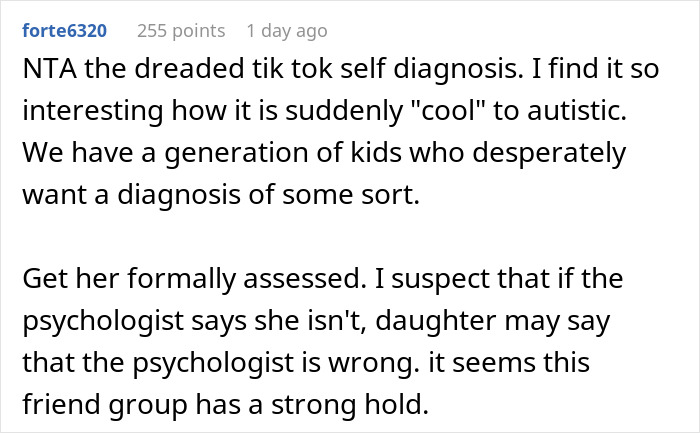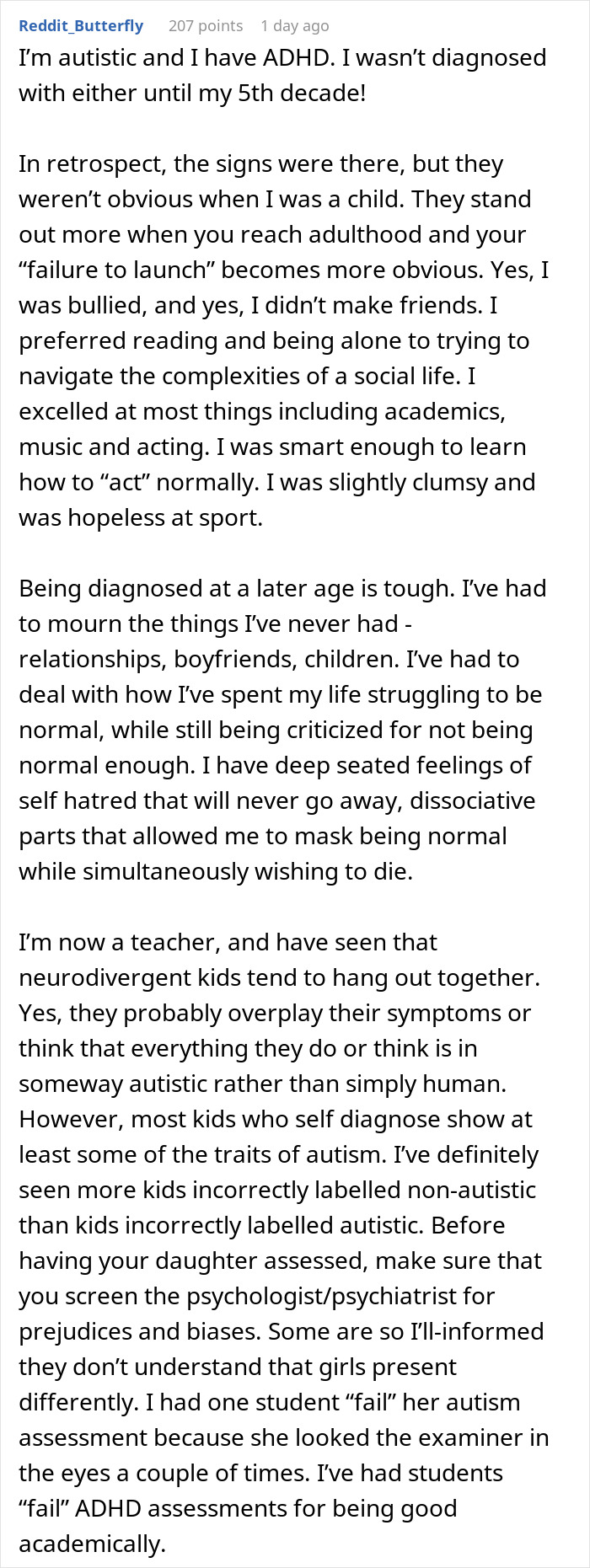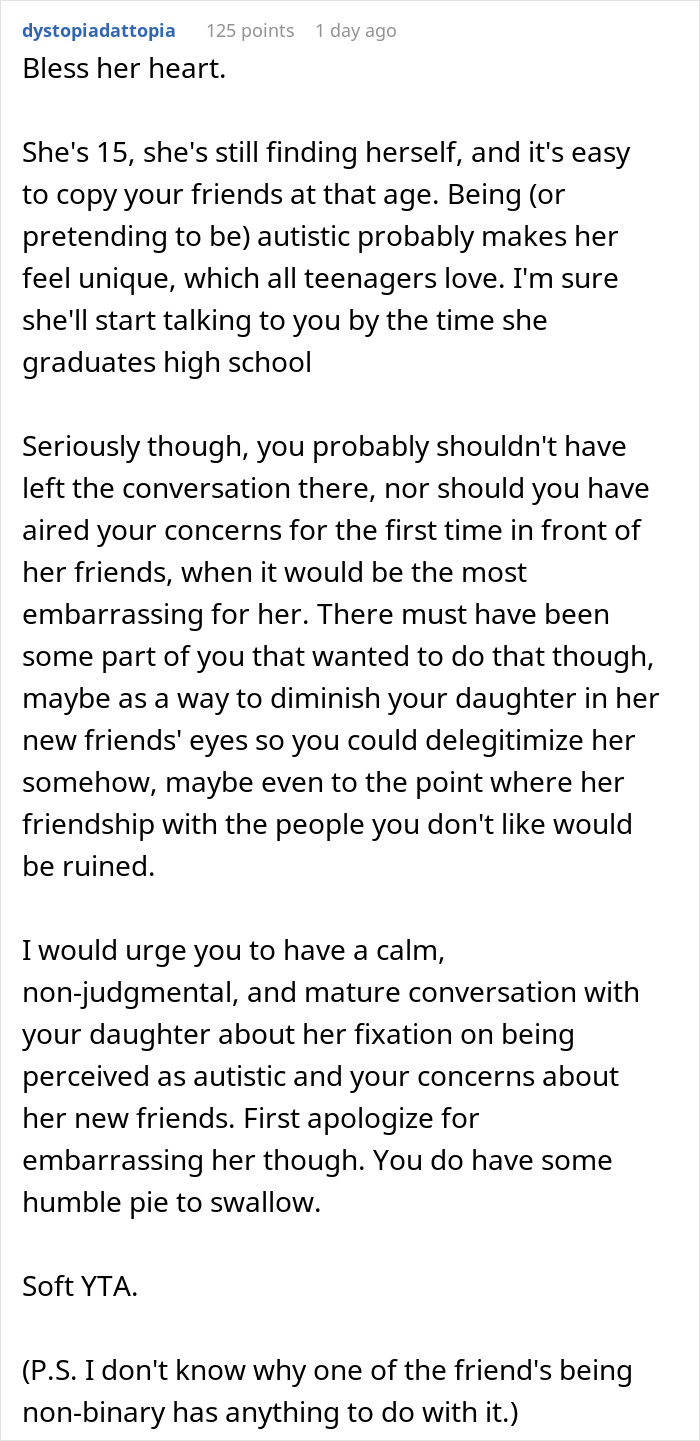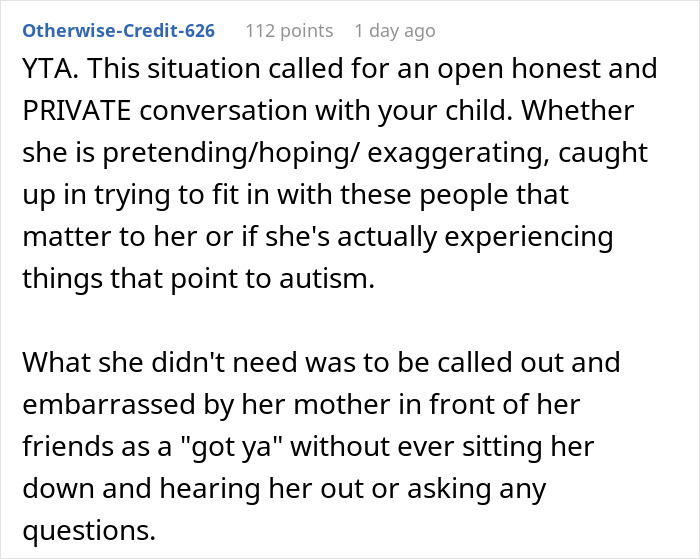Ever since the digital revolution, people have had this strange urge to be “trendy,” and believe you me, it’s made them do some weird things, to say the least. I mean, how many stories have we heard about folks pulling off crazy stunts just to appear en vogue on social media?
Even this parent is worried about their daughter, who has self-proclaimed autism and has been making “stimming” videos about it on TikTok. Now, the parent feels it’s because of her new friends, who are also “autistic,” so they told her off in front of them, angering the teen.
More info: Reddit
Teens often find a way to conform with their peers, not knowing if what they are doing is right or wrong

Image credits: Aline Viana Prado / Pexels (not the actual photo)
The poster is extremely proud of their 15-year-old daughter who has a lot of achievements to her name, but they are unhappy with her new friends
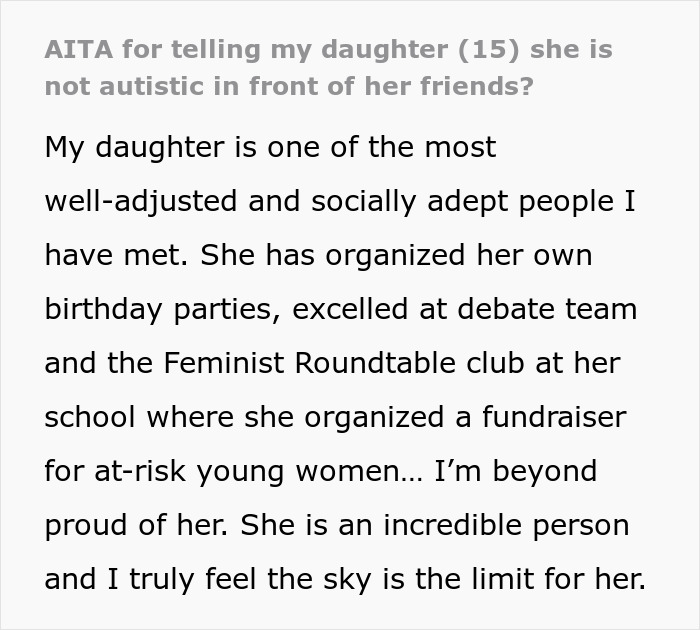
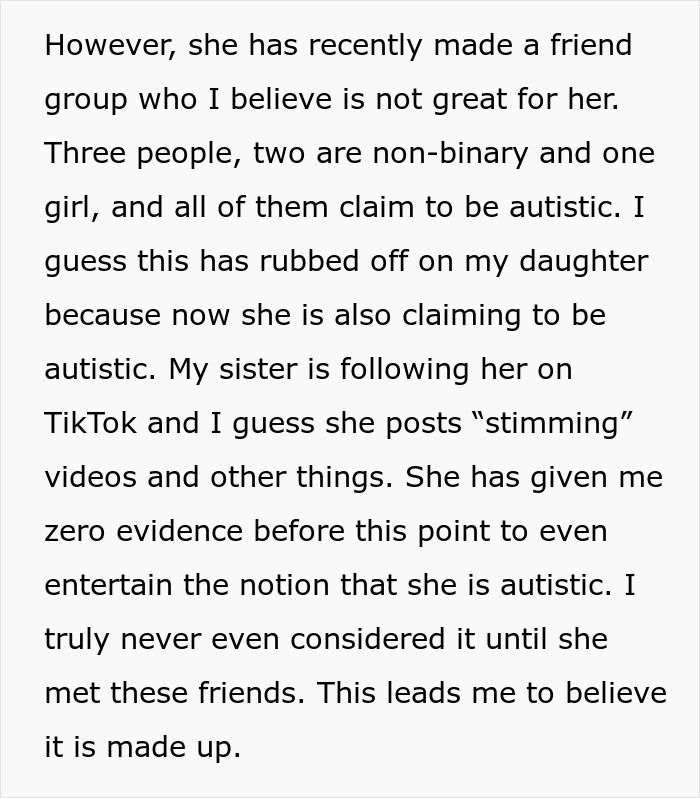
Image credits: Exotic-Front-643

Image credits: RDNE Stock project / Pexels (not the actual photo)
All three of these new friends claim to be autistic, and even her daughter has self-diagnosed with it, making stimming videos on TikTok
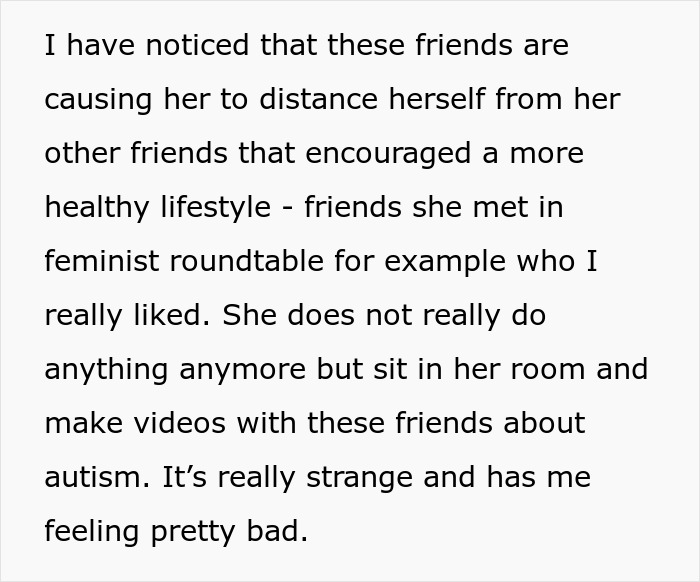
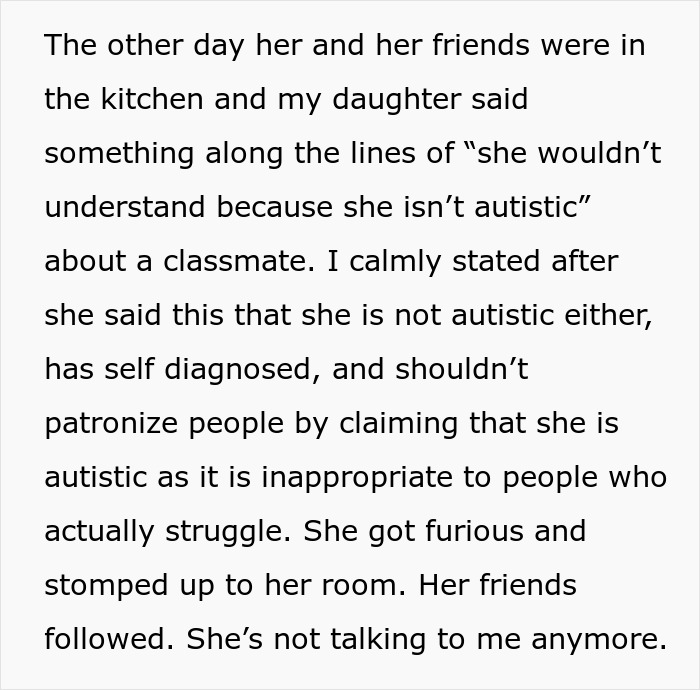
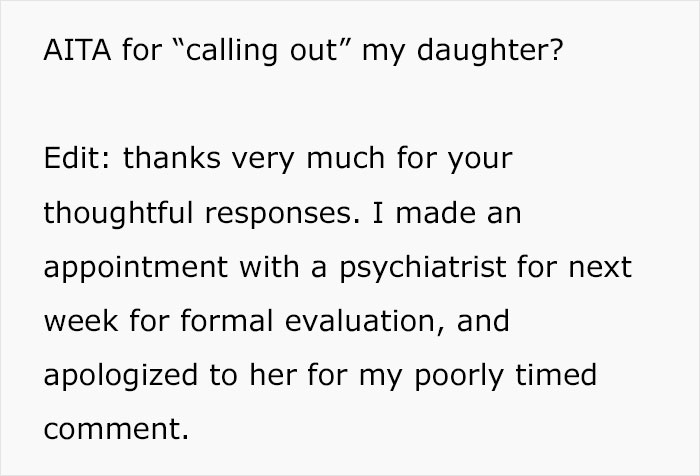
Image credits: Exotic-Front-643
One day, while the girls were talking about autism, the poster told her daughter that she didn’t have it in front of her friends, which really angered her
In today’s story, we dive into the world of a concerned parent who thinks that their 15-year-old daughter changed after making new friends. Two of these friends are non-binary, while the third is a girl, but all three claim to have autism, and even the original poster’s (OP) daughter claims the same.
The poster is completely irate over this self-diagnosis of autism and finds it strange when their daughter makes “stimming” videos on TikTok. To understand more about the matter, Bored Panda reached out to Eden Lobo, a counselor and psychology professor.
She mentioned that, although self-diagnosis can be a helpful tool for some individuals, professional diagnosis is the most accurate way to identify autism. She believes that several factors might contribute to a socially adept and high-achieving teenager suddenly believing they are autistic.
“Identity exploration, the influence of social media, awareness campaigns, perception of traits, social influences, validation of emotions and behavior, or some underlying psychological factors might be the reason for it. Understanding the motivations behind this belief requires open communication and possibly a professional evaluation,” Prof. Lobo explained.
Prior to this, the parent claims her daughter had never shown any signs of autism until meeting these new friends, which is why OP feels it’s made up. The parent also says that the teen has distanced herself from her other friends, and now all she does is make videos about autism with these new friends.
Prof. Lobo narrates that joining a friend group where individuals identify as autistic can influence someone to adopt similar behaviors or identities, especially during adolescence, a period marked by identity exploration and social learning. She emphasized that teens may also align themselves with the identity of their peer group to feel a sense of belonging and acceptance.
Since it’s something new for the parent, it is naturally frustrating because they don’t know whether it’s genuine or not. When the teen and her friends were talking about autism one day, the annoyed parent lashed out and said that she was self-diagnosed and it’s inappropriate for people who actually struggle with it.
Well, all of the teens stormed off in anger and the poster’s daughter is still not talking to them. After the story garnered attention online, many folks declared that the way the parent handled the situation was awful. She was, after all, just a teen, and calling her out in front of her friends must have been embarrassing for her.

Image credits: RDNE Stock project / Pexels (not the actual photo)
They said that even if she did—or didn’t have—autism, she would think of the parent as the last person to look for support after the way they reacted. Prof Lobo noted that teens often see their friendships and social identities as critical parts of their lives, and a public challenge to these can provoke anger and resentment.
“Being corrected or challenged by parents, especially in front of peers, can be deeply embarrassing for a teen. It might make them feel exposed or humiliated. Calling out the teen’s self-identified traits, like being autistic, may lead them to feel that their parent dismisses or belittles their experiences, whether or not the identity is accurate.”
“It may erode the teen’s confidence, especially if it relates to their exploration of a new identity or personal traits. Further, the teen might feel betrayed by the parent for addressing a sensitive topic in front of others, reducing her willingness to share her thoughts and feelings in the future,” Prof. Lobo elaborated.
Well, just like the Redditors highlighted, calling her out in front of her friends was a bad move on the parent’s part and it drew criticism from many netizens. A few also found it disturbing that teens at times proclaim autism just to be “trendy,” and almost all agreed that getting her daughter checked by an expert would be a wise choice.
OP also revealed that they were ashamed of calling out their daughter in front of her friends and had already apologized to her. They also gave an update that they sat down with their daughter and talked things through where she revealed that she was just bored of everything and wanted to try something different.
The teen also said that apart from the anxiety, she couldn’t relate to any other symptoms and her friends had told her that she had it. However, after they discussed it, the daughter decided to quit a few of her past activities and try something new, like photography.
We also contacted the poster to understand their thoughts and they said, “The most challenging part was feeling like my daughter was changing, and I had absolutely no idea why she was changing. She’s my only child, so I’m not used to the turbulence of a kid growing up yet, and all the changes they go through.”
When we asked them what advice they would like to give other parents in a similar situation, OP stressed to be more in tune with your children. “I realized I did not ask her a lot of questions and instead jumped right to potentially embarrassing her out of frustration. I should have asked her what made her feel autistic right away. I did ask later, but I had already hurt her feelings at that point,” they added.
What do you make of it? Let us know your thoughts in the comments section below!
Folks online were baffled by the teen’s behavior and advised the poster to have her daughter checked, while some chided the parent for outing her in front of her friends
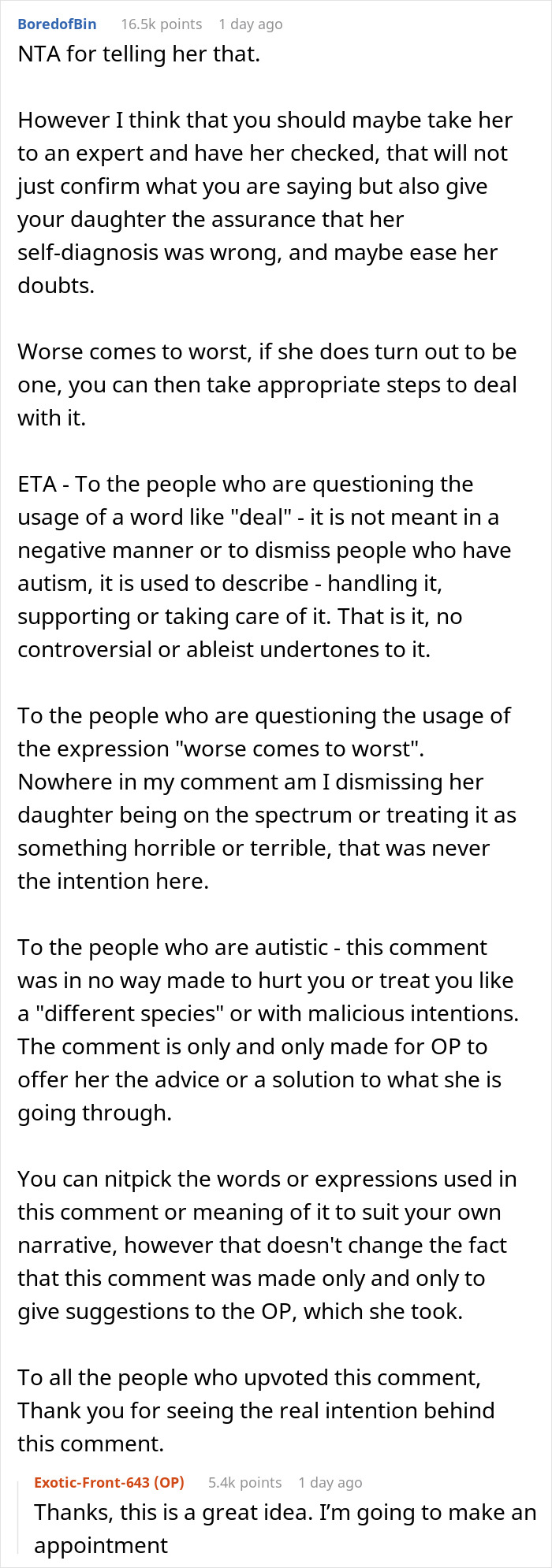
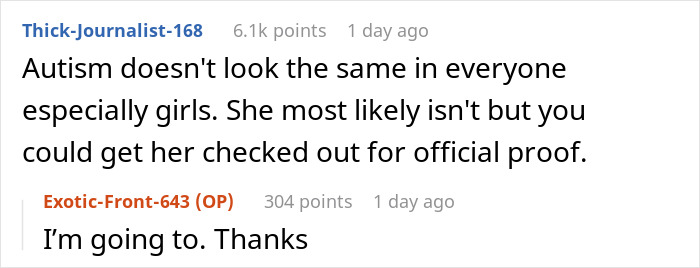

Image credits: Kaboompics.com / Pexels (not the actual photo)
